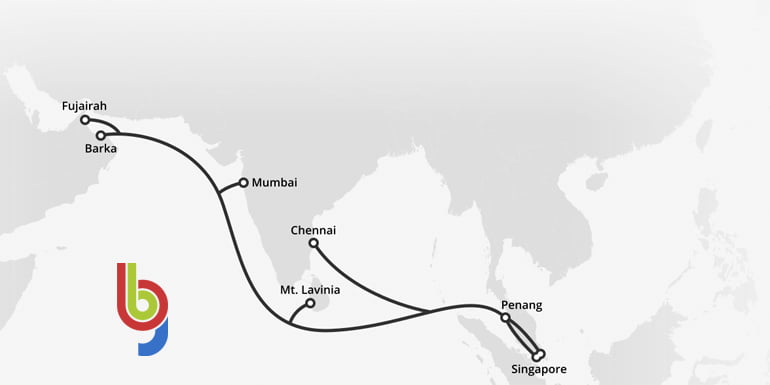Opening up a high-speed, high capacity, low latency route connecting India to the rest of the world, Reliance Jio the telecom arm of Reliance Industries launched the Bay of Bengal Gateway (BBG).
Spanning over 8,100 KM state of the art cable system, BBG will expand India’s connectivity to South East Asia and the Middle East. Then through interconnection with existing cable systems, BBG will connect to Europe, Africa, and Far East Asia.
BBG will connect Malaysia (through Penang) and Singapore to the Middle East (Oman and United Arab Emirates) with connections reaching out to India (Mumbai and Chennai) and Sri Lanka.
Reliance Jio owns and operates this strategically important undersea cable landing facility in Chennai. It will also act as 100 Gbps extension of Jio’s 100 Gbps core network.

BBG has utilized the latest submarine cable 100Gbps transmission technology, utilizing wavelength add/drop branching units along the route, with an initially equipped capacity of 9 terabits per second. This will provide a robust, reliable, low latency connectivity in and out of India.
“We are excited about the launch of BBG as it offers not just direct connectivity in and out of India through Chennai and Mumbai but also acts as a state-of-the-art 100 Gbps extension of Jio’s 100 Gbps core network,” said Mathew Oommen, President Reliance Jio. “This global connectivity brings key international content hubs closer to our customers, delivering a much richer experience as an important part of driving India’s broadband adoption, enabling consumers to shift away from the current high-cost low-value propositions,” he added.
The project started three years ago when Reliance Jio Infocomm Ltd signed a consortium with International telecom players including Dialog Axiata, Etisalat, Omantel, Telecom Malaysia, and Vodafone to establish the Bay of Bengal Gateway (BBG) submarine cable system.
The cable system will help Reliance Jio to provide a robust and future-proof backbone for rolling out its state-of-the-art 4G services in India.


